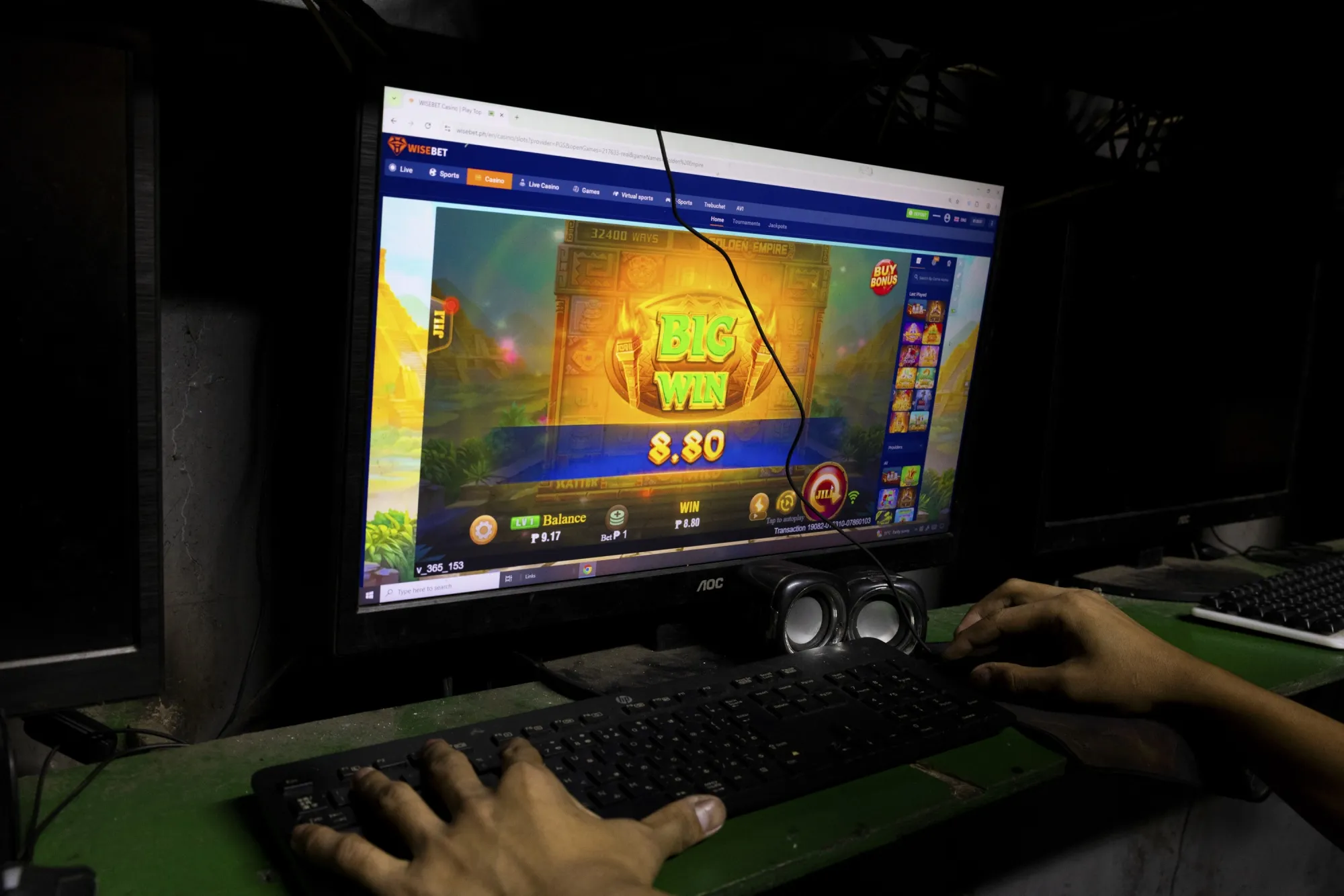Have you ever wondered how online casinos work and what really happens behind the flashy graphics and exciting sound effects? At first glance, these platforms might seem like simple websites where you spin a wheel or draw cards, but the reality is far more complex and fascinating. Modern online casinos are sophisticated digital ecosystems where software engineering, probability, and financial logistics come together to create an experience that feels both thrilling and secure.
Unlike traditional brick-and-mortar casinos, where you can see the cards being shuffled or the roulette wheel spinning, online casinos rely entirely on digital systems to manage games, player accounts, and monetary transactions. These systems work seamlessly to ensure that every player gets a fair chance while keeping the gameplay fast, responsive, and engaging.
At the heart of an online casino is the game engine, a powerful piece of software that determines the outcome of every spin, card draw, or dice roll. This engine uses Random Number Generators (RNGs) to make sure that each result is completely unpredictable and independent from previous outcomes. Certified by independent auditors, these algorithms are designed to mirror the randomness you’d expect in a real-life casino. But the engine is just one part of the puzzle. Online casinos also use complex databases to manage player accounts, track balances, enforce betting rules, and store transaction history. This combination of RNGs, databases, and secure interfaces is what allows casinos to run smoothly, even under heavy traffic, and maintain the excitement of real gambling.
Another key component is the payment system. Deposits and withdrawals happen instantly for many players, thanks to the integration of digital wallets, credit cards, and even cryptocurrencies. Advanced encryption and authentication protocols keep these transactions secure, so players can enjoy the thrill of the game without worrying about the safety of their funds. While players see a simple, polished interface, behind the scenes the casino is performing a complex dance of data management, financial processing, and regulatory compliance.
Key components of online casino systems
To simplify, the main elements of casino mechanics explained include:
- Game engines and RNG algorithms – Ensuring unpredictable and fair outcomes.
- Player account management – Tracking balances, wagers, and history.
- Payment gateways – Handling deposits, withdrawals, and currency conversions.
- Security systems – Protecting personal and financial information.
- Regulatory compliance – Making sure the casino meets legal standards and licensing rules.
When you look behind the curtain, it’s easy to see that online casino systems are much more than a collection of games. They are carefully designed networks where software, finance, and chance collide to create a fun, fair, and secure gambling experience. Understanding these inner workings gives you a new appreciation for what goes into every click, spin, and bet on the platform.
How do online casinos make money
Ever wondered how casinos earn their profits while players enjoy endless spins, card games, and roulette wheels? Understanding casino profits online requires a closer look at the fundamental business model behind these platforms. Unlike traditional brick-and-mortar casinos, online casinos have lower overhead costs—they don’t need to maintain a physical building, pay for large staffs, or cover utilities and maintenance for expansive gaming floors. Despite this, they generate revenue through a variety of sophisticated channels that maximize profitability while maintaining a fair gaming environment for players. Their casino revenue streams are strategically designed to balance risk, attract players, and ensure a consistent cash flow, making online gambling a highly lucrative industry.
At the core, the main method of making money for any online casino is the concept of the house edge. Every game is mathematically structured so that the casino has a slight statistical advantage over players. This edge is carefully calculated for each game—slots, blackjack, roulette, and poker—ensuring that over the long term, the casino earns a predictable profit. Players might win occasionally, and big jackpots are possible, but the overall system favors the house. This design is completely legal, widely regulated, and considered a standard practice across the gambling industry. While the house edge varies depending on the game and the provider, it remains the foundation of all casino profits online.
Another significant revenue driver is player incentives and promotions. Online casinos attract users with welcome bonuses, free spins, and loyalty programs, which encourage more frequent play. While these offers might seem generous, they are carefully crafted marketing tools that increase player engagement, extend session times, and ultimately enhance casino revenue streams. Additionally, many platforms offer VIP programs or high-stakes tables where larger wagers can produce higher returns for the casino. By analyzing player behavior and preferences, operators can fine-tune promotions and game offerings to maximize profitability without compromising fairness or transparency.
Main revenue streams of online casinos
To summarize, the key sources of how casinos earn revenue online include:
- House edge on games – Ensuring statistical advantage over players.
- RNG and game design – Optimized to balance fairness with profitability.
- Player incentives and promotions – Encouraging longer play and increased deposits.
- VIP programs and high-stakes tables – Generating higher returns from heavy players.
- Additional services – Fees on certain transactions, partnerships, and cross-promotions.
By understanding these strategies, it becomes clear that online casinos are not just random platforms for entertainment. They are meticulously designed business models where probability, psychology, and marketing intersect to produce a steady flow of income. Recognizing casino profits online and the ways how casinos earn allows players to appreciate the complexity behind the games, while also understanding the importance of responsible gambling and managing personal risk. In essence, online casinos succeed because they combine engaging gameplay with carefully calculated revenue strategies, keeping both players and operators invested in the long-term experience.
What role do licenses and regulators play
When stepping into the world of online gambling, one of the most critical aspects that often goes unnoticed by casual players is the role of casino licenses and gambling regulators. These elements form the backbone of a safe, transparent, and legally compliant online casino industry. A licensed online casino is not just a marketing label—it is a guarantee that the platform operates under strict rules, audits, and regulatory oversight designed to protect players and maintain fair play. Without licensing and regulation, online gambling would be a chaotic environment, prone to fraud, unfair practices, and financial insecurity for players. In essence, regulators ensure that both the house and the player are operating on a level playing field, while also enforcing ethical and legal standards.
Casino licenses are issued by governmental or independent regulatory bodies after extensive evaluation of the casino’s software, security protocols, financial systems, and business practices. Popular licensing authorities include the Malta Gaming Authority (MGA), the United Kingdom Gambling Commission (UKGC), and the Gibraltar Regulatory Authority. Each license requires the casino to meet rigorous criteria regarding game fairness, responsible gambling policies, and secure financial operations. The license is often visible to players on the casino website, serving as a mark of trustworthiness and credibility. For operators, holding a license demonstrates legitimacy and allows them to legally offer gambling services in multiple jurisdictions, often boosting their reputation and attracting more players.
Gambling regulators play an equally important role by continuously monitoring licensed operators. Their responsibilities extend beyond issuing licenses—they conduct routine audits, test Random Number Generators (RNGs) to verify fairness, and investigate complaints or irregularities reported by players. Regulators also enforce responsible gambling measures, including setting limits on bets, providing self-exclusion programs, and ensuring the casino offers tools to prevent gambling addiction. By doing so, they help protect players while maintaining the integrity of the gambling market. Players benefit directly from these regulations, as they reduce the risk of fraud, guarantee that winnings are paid fairly, and provide a mechanism to resolve disputes.
The importance of casino licenses and regulators
A simplified overview of the role of casino licenses and regulators includes:
- Issuance of licenses – Evaluating the casino’s compliance with legal and operational standards.
- Ongoing monitoring – Conducting audits and inspections to maintain transparency.
- Fair play enforcement – Testing RNGs and game mechanics for randomness.
- Responsible gambling enforcement – Ensuring tools and limits are available for players.
- Dispute resolution – Providing mechanisms for complaints and financial recovery.
Ultimately, the presence of proper licensing and vigilant regulatory oversight is what separates trustworthy licensed online casinos from unregulated, potentially risky platforms. Understanding this framework helps players make informed decisions, ensuring their gaming experience is both enjoyable and secure. Without these safeguards, the trust and safety that are foundational to online gambling would simply not exist, highlighting the indispensable role of gambling regulators in the modern digital casino landscape.
How do casino payouts and margins work
One of the most fascinating aspects of online gambling is understanding how casino payouts and margins work behind the scenes. While players often focus on the thrill of spinning a slot or hitting a blackjack hand, the underlying mathematics of the platform is what ensures the casino remains profitable over time. At the core of this system is the concept of the casino profit model, which combines statistical probabilities, house edges, and payout ratios to generate a steady stream of revenue. Understanding the relationship between payout ratio casino and casino margins allows players to make more informed decisions and gives insight into why certain games offer bigger jackpots or smaller but more frequent wins.
The payout ratio—also known as Return to Player (RTP)—represents the percentage of all wagered money that a game is programmed to return to players over time. For example, a slot machine with a 96% RTP will, on average, return $96 for every $100 wagered, leaving a 4% margin for the casino. This margin, though seemingly small per individual bet, accumulates significantly across thousands or millions of wagers, forming the basis of the casino’s profit. The RTP is carefully calculated and often independently verified to ensure fairness and maintain regulatory compliance. High RTP games attract more players because of their potential returns, while games with lower RTPs tend to offer bigger jackpots, balancing risk and reward.
Another key component of the casino profit model is the house edge, which guarantees that the casino has a statistical advantage in every game. Unlike a payout ratio that measures returns to players, the house edge directly represents the casino’s built-in margin. Different games have varying house edges—roulette, blackjack, baccarat, and slots each operate under unique rules and probabilities. For example, European roulette has a lower house edge than American roulette due to the single zero, while slot machines rely on complex RNG calculations to achieve the desired payout ratio. By carefully setting these margins, casinos ensure profitability while still providing players with fair and enjoyable gaming experiences.
Key factors in casino payouts and margins
To simplify, the main factors affecting casino payouts and margins include:
- Return to Player (RTP) or payout ratio – Percentage of wagers returned to players over time.
- House edge – Built-in statistical advantage for the casino on each game.
- Game type and rules – Variations in rules affect probabilities and payouts.
- Jackpots and bonus structures – High-risk, high-reward opportunities that attract players.
- Betting patterns and player behavior – Casinos analyze trends to optimize profitability.
By understanding these mechanisms, it becomes clear that online casinos are carefully designed systems where probability and player behavior intersect to create sustainable revenue. While players enjoy the entertainment, the casino’s structured margins and payout strategies guarantee long-term profitability. Recognizing the connection between casino margins, payout ratio casino, and the overall casino profit model not only helps players make smarter choices but also illustrates the intricate balance between risk, reward, and financial sustainability that defines the online gambling industry.
Are online casinos audited for fairness
When playing at an online casino, one of the most important questions players should ask is whether the platform is genuinely fair. After all, trust is the foundation of any gambling experience. This is where casino audits and gambling fairness tests come into play. Licensed and reputable online casinos are subject to rigorous, independent audits that ensure all games operate as advertised and that no player is unfairly disadvantaged. These audits examine the software, game outcomes, and underlying algorithms to verify that the platform adheres to industry standards and legal regulations. Without these checks, players would have no assurance that spins, card draws, or dice rolls are truly random.
At the heart of these audits is the Random Number Generator (RNG), which determines the outcome of virtually every game. RNG audits casinos conduct are designed to ensure that results are completely random and unpredictable, reflecting the same probabilities you would encounter in a real-world casino. Independent auditing firms such as eCOGRA, iTech Labs, and GLI regularly test RNG software, analyzing millions of simulated outcomes to confirm statistical fairness. They also review payout percentages to verify that they match the advertised payout ratio casino. These procedures are essential not only for player trust but also for maintaining the legal license of the casino.
In addition to testing software, auditors evaluate the casino’s operational processes, including how bets are handled, how winnings are paid, and how responsible gambling measures are implemented. Gambling fairness tests cover a broad range of scenarios, from ensuring that bonus games operate correctly to verifying that progressive jackpots are distributed fairly. They also examine the transparency of terms and conditions, ensuring players are fully informed about how games and promotions work. For licensed online casinos, these audits are not optional—they are mandatory components of regulatory compliance.
Overview of online casino audits and fairness tests
A simplified overview of the auditing process includes:
- RNG testing – Verifying that game outcomes are truly random.
- Payout verification – Ensuring advertised RTP matches actual results.
- Operational checks – Reviewing transaction handling and bonus implementations.
- Compliance review – Confirming adherence to licensing and regulatory standards.
- Reporting and certification – Independent auditors provide official reports and seals of approval.
By understanding the role of casino audits and gambling fairness tests, players can confidently engage with licensed online casinos knowing that every spin, card, or dice roll is backed by rigorous verification. These audits are what separate trustworthy operators from unregulated platforms, ensuring that the virtual gambling experience is not only entertaining but also transparent, safe, and fair. Ultimately, RNG audits casinos conduct are a cornerstone of online gambling integrity, protecting both players and the long-term reputation of the industry.
Additionally – providers and operators
When exploring the inner workings of online casinos, it is impossible to overlook the crucial role of casino software providers and the operators that run these platforms. While the casino itself sets the rules, manages accounts, and handles payments, the software providers supply the games, graphics, and underlying mechanics that make the experience engaging and reliable. Leading companies such as NetEnt and Microgaming providers have become synonymous with high-quality, innovative games that attract millions of players worldwide. These providers design the slots, table games, and live dealer experiences that define the modern online gambling landscape, integrating sophisticated RNG systems, advanced graphics engines, and immersive gameplay features. Without their contribution, operators would lack the content and technology needed to sustain competitive platforms.
iGaming platforms play an equally important role, acting as the technical backbone that allows casinos to deploy games, manage user interfaces, and handle vast volumes of real-time data. These platforms integrate game libraries from multiple software providers, manage player accounts, process transactions, and ensure compliance with regulatory requirements. They also facilitate smooth performance across different devices, from desktop computers to mobile phones, allowing players to access games anytime, anywhere. The collaboration between operators and software providers ensures that games not only function correctly but also maintain fairness and responsiveness. This integration is essential for building trust and providing a seamless gaming experience.
Another important aspect is the continuous innovation driven by software providers. Companies like NetEnt and Microgaming constantly release new game titles, introduce creative mechanics, and improve RTP percentages, all while adhering to industry regulations. Operators, in turn, select and integrate these games into their platforms, tailoring the offerings to their target audience. This symbiotic relationship creates a dynamic marketplace where technology, entertainment, and profitability intersect. Additionally, software providers often assist with auditing and RNG verification, ensuring that the games comply with standards for casino audits and fairness, further reinforcing the trustworthiness of licensed platforms.
Role of casino software providers and iGaming platforms
To summarize, the main contributions of casino software providers and iGaming platforms include:
- Game development – Designing slots, table games, and live dealer experiences.
- RNG integration – Ensuring fairness and unpredictability in outcomes.
- Platform support – Providing the infrastructure for seamless gameplay across devices.
- Innovation and updates – Continuously improving game mechanics, graphics, and RTP.
- Compliance assistance – Supporting operators in maintaining regulatory standards.
Understanding the collaboration between NetEnt, Microgaming providers, and iGaming platforms clarifies how online casinos deliver high-quality, reliable, and engaging experiences. Players benefit from both the entertainment value and the assurance of fairness, while operators leverage innovative technology to optimize profitability. Ultimately, this ecosystem of software providers and operators is what allows online casinos to thrive, combining cutting-edge technology with regulatory compliance and engaging gameplay.
Yes, online casinos often set payout limits to manage risk and ensure financial stability. These limits can apply per day, per week, or per month, depending on the game and the casino’s policies. Large wins may require additional verification or may be split into multiple payments. Understanding these rules before playing helps players plan withdrawals and avoid surprises. Withdrawal limits help casinos control liquidity and reduce potential fraud or money-laundering risks. By limiting the amount a player can withdraw at one time, the casino ensures it can meet all obligations without financial strain. These limits also protect players by encouraging responsible gambling and preventing impulsive, high-risk withdrawals. Clear communication of these rules maintains trust between the casino and its players. Casinos track player activity using software that records bets, wins, losses, and game behavior. This data helps casinos identify problem gambling patterns, personalize bonuses, and improve game offerings. Tracking also allows the casino to detect fraudulent activity and ensure compliance with regulatory requirements. Responsible monitoring safeguards both the player and the operator while enhancing the gaming experience. While tracking is primarily for monitoring and personalization, it does not alter game fairness. Licensed casinos use random number generators to ensure unbiased outcomes regardless of player behavior. Tracking data is used to offer tailored promotions or loyalty rewards, not to manipulate results. Transparency and regulation guarantee that all players are treated fairly. Profits in licensed online casinos are generally transparent and audited to ensure compliance with regulations. Operators are required to maintain accurate financial records and undergo independent testing to confirm fairness and solvency. This oversight helps maintain player trust and prevents unethical practices. Transparency also ensures that casinos can reliably pay out winnings to players. Online casinos earn profit primarily through the house edge, which gives them a statistical advantage over players in every game. They also benefit from fees, rakes, and commissions in games like poker or sports betting. By managing payouts and operating efficiently, casinos maintain profitability while still providing fair opportunities for players to win. Understanding this model helps players make informed choices. While individual player contributions aren’t disclosed, aggregated data about game payouts and RTP provides insight into how casinos generate revenue. Publicly available audits and reports from licensed operators offer transparency about overall profitability. This information allows players to understand the balance between potential winnings and the house edge. Licensed online casinos use secure software, audited random number generators, and strict regulatory oversight to maintain fairness. Independent testing agencies verify game integrity, and continuous monitoring ensures compliance with rules. These safeguards protect both the operator and the players, creating a trustworthy environment for online gambling. Players can feel confident that games are fair when choosing regulated casinos.FAQ: How do online casinos work behind the scenes?
Do online casinos set payout limits?
Why do casinos impose withdrawal limits?
How do online casinos track player activity?
Can tracking affect how games behave for individual players?
Are online casino profits transparent?
How do casinos generate profit from online games?
Can players know how much the casino earns from them?
What safeguards ensure online casinos operate fairly?








